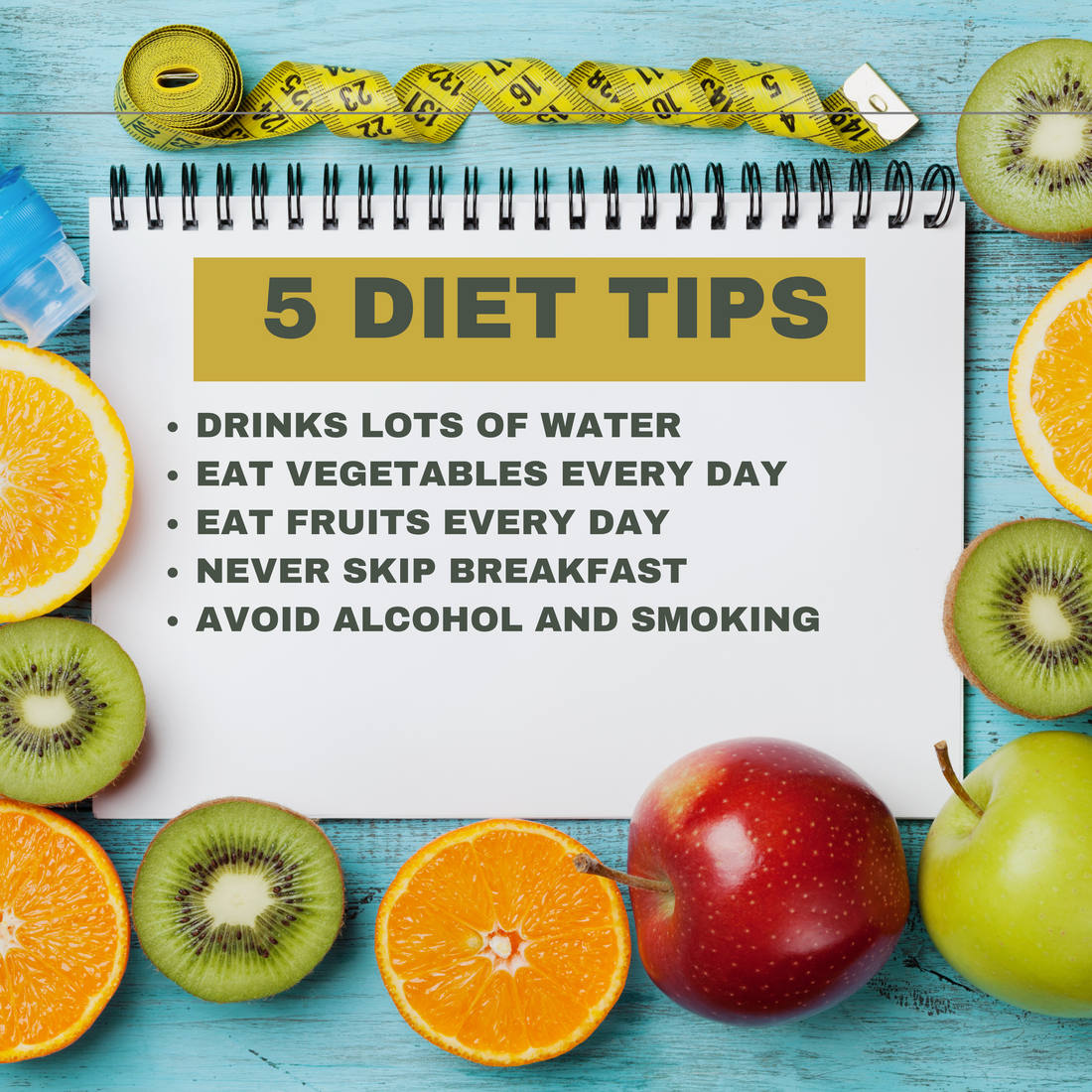
The Role of Diet in Skin Care: Foods for Healthy, Glowing Skin
Share
Healthy, radiant skin isn't just about the products you apply; it's also about what you eat. The connection between diet and skin health is well-established, with certain nutrients playing a crucial role in maintaining and improving your skin's appearance. In this blog, we’ll explore how your diet impacts your skin and which foods to incorporate for a glowing complexion. Let's dive into the science behind skin-friendly nutrition and practical tips to enhance your diet for better skin care.
How Diet Affects Your Skin
Your skin is a reflection of your overall health. Nutrients from the food you eat help in the repair and regeneration of skin cells, protect against environmental damage, and support the skin's structural integrity. Here’s how specific nutrients influence skin health:
- Antioxidants: Antioxidants like vitamins C and E protect the skin from oxidative stress and free radical damage, which can cause premature aging and skin damage.
- Healthy Fats: Omega-3 and omega-6 fatty acids maintain the skin's lipid barrier, keeping it hydrated and supple.
- Proteins: Amino acids from proteins are essential for the production of collagen and elastin, which keep the skin firm and elastic.
- Vitamins and Minerals: Vitamins A, D, and zinc support skin cell growth, repair, and immune function, helping to maintain a clear and healthy complexion.
Top Skin-Friendly Foods
To nourish your skin from the inside out, include the following foods in your diet:
- Fatty Fish: Salmon, mackerel, and sardines are rich in omega-3 fatty acids, which help reduce inflammation and keep skin moisturised.
- Avocados: Packed with healthy fats, vitamin E, and vitamin C, avocados help protect your skin from oxidative damage and keep it hydrated.
- Nuts and Seeds: Almonds, walnuts, and flaxseeds provide essential fatty acids, vitamin E, and zinc, which are vital for skin repair and hydration.
- Sweet Potatoes: High in beta-carotene, which the body converts to vitamin A, sweet potatoes help maintain healthy skin cell production and a natural glow.
- Bell Peppers: Rich in vitamins A and C, bell peppers boost collagen production and protect the skin from oxidative stress.
- Spinach and Leafy Greens: These are loaded with vitamins A, C, and E, which support skin repair, hydration, and protection from environmental damage.
- Tomatoes: Containing lycopene, a powerful antioxidant, tomatoes help protect the skin from UV damage and improve overall skin health.
- Green Tea: Full of antioxidants, particularly catechins, green tea helps reduce inflammation and protects the skin from sun damage.
- Berries: Blueberries, strawberries, and raspberries are high in antioxidants and vitamin C, promoting collagen synthesis and protecting against free radicals.
- Water: Staying hydrated is crucial for maintaining skin elasticity and suppleness. Drink plenty of water throughout the day to keep your skin looking fresh and radiant.
Foods to Avoid for Better Skin
While certain foods can enhance your skin's appearance, others can have negative effects. Limit the intake of these items to avoid skin problems:
- Sugary Foods: High sugar levels can lead to glycation, which damages collagen and elastin, causing wrinkles and sagging skin.
- Dairy Products: Some studies suggest a link between dairy consumption and acne, possibly due to hormones present in milk.
- Processed Foods: High in unhealthy fats, sugar, and salt, processed foods can lead to inflammation and exacerbate skin issues.
- Alcohol: Excessive alcohol consumption can dehydrate the skin and impair its ability to repair and regenerate.
Tips for a Skin-Healthy Diet
- 1. Balance Your Nutrients: Ensure your diet includes a variety of nutrients to support overall skin health.
- Stay Hydrated: Drink plenty of water and include hydrating foods like cucumbers and watermelon.
- Limit Processed Foods: Opt for whole, unprocessed foods whenever possible.
- Mind Your Portions: Eat in moderation to avoid overconsumption of any one food group.
- Consult a Professional: If you have specific skin concerns or dietary needs, consider consulting a dermatologist or a nutritionist for personalised advice.
Your diet plays a pivotal role in the health and appearance of your skin. By incorporating nutrient-rich foods like fatty fish, avocados, nuts, and leafy greens, and avoiding skin-damaging items like sugary snacks and processed foods, you can achieve a glowing, healthy complexion. Remember, what you put on your plate is just as important as what you put on your skin.
Elevate your skincare routine from the inside out and enjoy the benefits of radiant, healthy skin.






